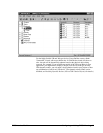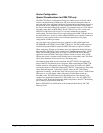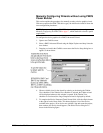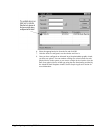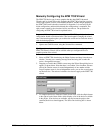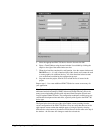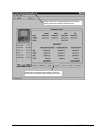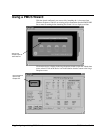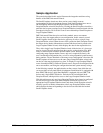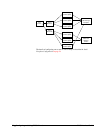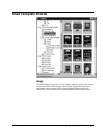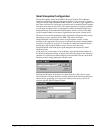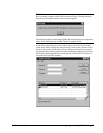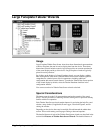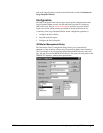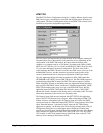
PMCS Interface Toolkit Configuring and Using PMCS Wizards • 21
Sample Application
The scenario described in this section illustrates the integration and time-saving
benefits of the PMCS Advanced Wizards.
The Small Faceplate wizards are often used to create visually accurate
representations of physical equipment line-up. Each Small Faceplate has a one-to-
one relationship with not only the physical device, but also the Large
Faceplate/Tabular wizard for that device. Clicking the Small Faceplate wizard for a
particular device opens a unique Large Faceplate/Tabular wizard associated with the
same physical device. We'll call this a one-to-one relationship of Small Faceplate to
Large Faceplate/Tabular.
PMCS Advanced Wizards may be used in the standard, one-to-one manner.
However, they also support many-to-one configuration. In this scenario, several
Small Faceplate wizards of the same device type may all refer to a single Large
Faceplate/Tabular wizard. When the user clicks a particular Small Faceplate wizard,
the unique device identity information associated with that wizard is passed to the
Large Faceplate/Tabular wizard, which displays the data for the requested device.
Thus, with a single Large Faceplate/Tabular wizard, all the devices of a given type
may be viewed. The user navigates from the overview to the elevation view, then
selects a small faceplate wizard to open the tabular screen. However, instead of
configuring many separate tabular screens, only one is required. Obviously, this
saves considerable configuration time, as well as saving substantial system memory
during runtime. The one drawback of the many-to-one configuration is that since the
Small Faceplates all share access to the same Large Faceplate/Tabular wizard, only
one device's data may be displayed at a time. To display a Large Faceplate/Tabular
screen for multiple PMCS Advanced Wizards at once, they must be configured in the
one-to-one manner, sacrificing the configuration time and system memory savings.
In the following example, the application has an Intro screen, from which the user
can access either of two panel boards of equipment. Panel Board #1 is equipped with
three EPM 7300 devices, while Panel Board #2 is equipped with two EPM 7700
devices and a single EPM 7300 device. Each device has an individual Small
Faceplate Wizard, which provides access to the Large Faceplate/Tabular wizard.
With this architecture, only one Large Faceplate/Tabular wizard must be configured
for each device type. Each of the Small Faceplate wizards has access to the
appropriate Large Faceplate/Tabular wizard, and when a Small Faceplate wizard is
invoked, it passes its identity information to the Large Faceplate/Tabular wizard,
which displays the data corresponding to the device associated with the invoked
Small Faceplate wizard.



